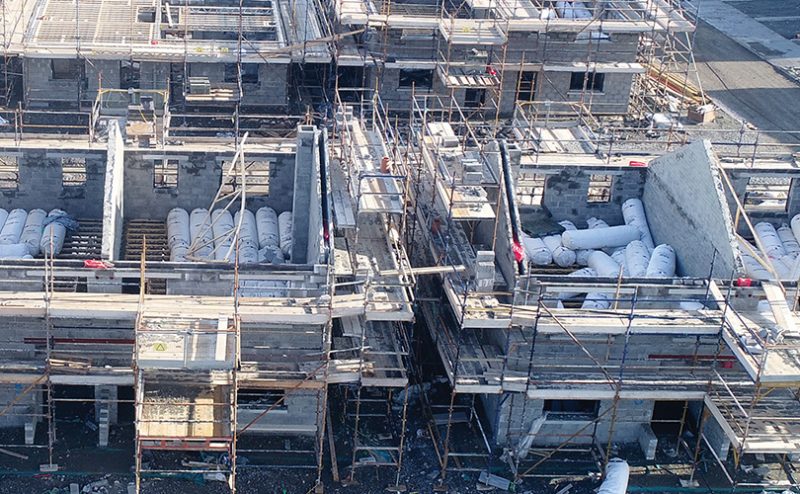
The Construction Industry Federation has stated that an additional €15bn over the next six years into infrastructure and housing is essential to overcome Covid-19’s impact in the short-term and solve the housing and climate change crises in the longer-term.
A high-level CIF delegation met with Ministers Donohoe and McGrath this week, to identify critical infrastructure and housing projects that could underpin economic recovery in other sectors such as tourism and retail in the short term.
The CIF’s submission contained an economic impact assessment of the construction industry on the wider economy. From a return on investment perspective, EY estimates that every €1 billion invested in infrastructure, housing and other construction related activity leads to:
The CIF’s economic impact analysis shows that construction generated directly and indirectly over €50 billion economic impact, contributing €19 billion to the economy through wages and profits. The €15billion stimulus package would by these figures generate an additional €27billion in output, 18,000 FTE jobs, €2.1 billion in exchequer revenue and €10.2 billion in wages and profits up to 2027. With money available at very low interest rates, Government can generate multiple economic and social benefits whilst the industry delivers essential housing, infrastructure and the specialist buildings that make Ireland an attractive location for investment from the global pharmaceutical, technology, medical devices sectors.
Speaking after the meeting, CIF Director General, Tom Parlon said: “The Government has a unique opportunity to drive our recovery, solve the housing crisis, build climate change resilience and facilitate our Covid-19 response by increasing investment in infrastructure, housing, and other construction activity. The reality is that the construction industry is the economic sector best-placed to generate the economic activity to erode the debt from dealing with Covid-19 as we have proven we can operate at capacity within the covid-19 context. We believe the ambition to do so is there within the Government. What is required now is a fundamental recalibration of how the industry and Government operate to ensure essential housing and infrastructure is delivered optimally.
“EY/DKM’s analysis shows the multipliers benefitting the wider economy validate a significant increase in funding into the national development project, the Government’s public capital infrastructure plan. The CIF will engage with Government to identify the key projects based on the immediate need for stimulus and sustainable and balanced regional development within the NDP and Project Ireland 2040. Our members are reporting a slowdown in commencements in housing (-45% year on year) and infrastructure projects, particularly in the regions. Companies now need a strong, ambitious commitment to increasing investment to bolster the industry’s confidence in a very challenging environment.”
The CIF has warned that achieving the desired housing output of 35,000 per year will not be achieved within the lifetime of this Government without significant changes to the current delivery system. Among the recommendations to alleviate Ireland’s housing crisis, the CIF is calling for the Government to introduce a shared equity scheme, that in conjunction with the Help-to-Buy, will enable the average couple to secure a mortgage and remove the ever-growing cohort of society locked out of the market and further adding pressure to the rental market. The CIF also recommend the help to buy (HTB) scheme until at least 31st December 2025 to provide certainty to the market and enable the homebuyer to secure the mortgage deposits for new homes.
The submission also included several changes and funding suggestions to stimulate job creation and encourage sustainable building practices to support the recovery period, including:
Tom Parlon, CIF Director General, said: “The construction industry is best-placed of all economic sectors to rebuild Ireland’s economy in 2021 and shape a sustainable, dynamic, and citizen-focussed Ireland 2040. Our research shows that every euro invested in the construction industry today has the greatest positive impact across the economy. Due to the industry’s scale and scope and its output, the industry can accelerate economic recovery in the immediate term and over the next 25 years. However, there is a significant caveat: this potential will be stymied without radical changes in how the State engages with the industry.
“The current system, involving multiple bureaucratic, regulatory, and political objectives, adds cost and delay to the delivery of private and public construction. Other major issues include, the slow pace of improving connectivity in the regions, the many blockages to improving housing output and affordability, the need for public investment to stimulate private investment and the overwhelming support for Project Ireland 2040. We are calling on the Government to harness the power of this industry through collaboration in a new way.”